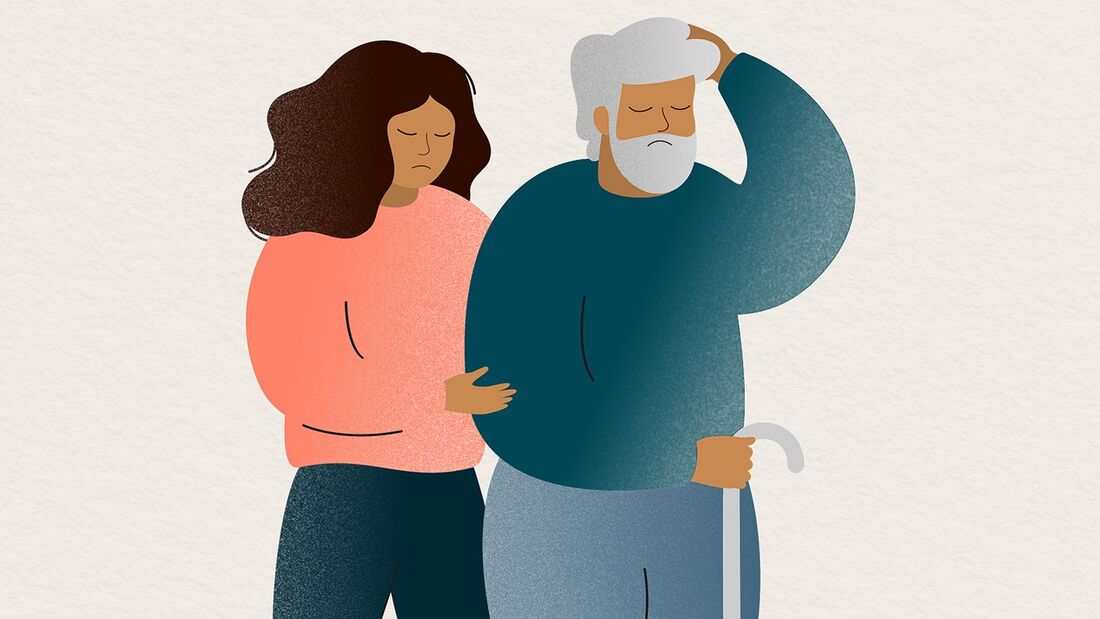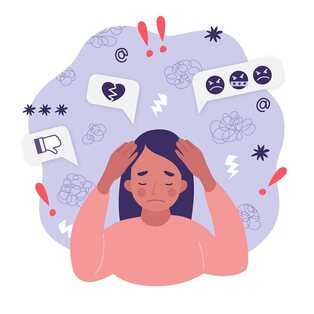|
Trauma can have a debilitating effect on a person's life. The raw emotions, intrusive thoughts, and maladaptive behaviors triggered by past experiences can create a prison of suffering. Fortunately, therapies like Eye Movement Desensitization and Reprocessing (EMDR) offer a powerful tool for breaking free.
Beyond Talk Therapy: A Different Approach Traditional talk therapy often delves into the "why" behind our issues, exploring the roots of our thoughts and behaviors. While valuable, it doesn't always address the raw emotional charge associated with trauma. EMDR takes a different path. We don't just talk about the event; we reprocess it, aiming to shift how the brain stores the memory. The Power of Bilateral Stimulation: The "eye movement" in EMDR isn't just a catchy name. It refers to various forms of bilateral stimulation, like side-to-side eye movements, hand taps, or auditory tones. While the exact mechanism remains under investigation, research suggests this stimulation activates the brain's natural processing and healing mechanisms. Unlocking the Vault: The first step is to create “grounding,” a safe space to explore the traumatic feelings. During EMDR sessions, you'll safely explore specific aspects of the traumatic memory, focusing on the most disturbing images, thoughts, and emotions. As you do, I'll guide you through the bilateral stimulation, creating a safe space for your brain to begin revisiting and reprocessing the experience. It's Not About Erasing Memories: It's important to clarify that EMDR doesn't erase memories. The events themselves remain, but their emotional sting is lessened. Imagine the memory like a locked file cabinet. EMDR helps reorganize that file, making it easier to access without being overwhelmed by the associated negativity. Transforming the Negative Narrative: As you reprocess the trauma, you'll also have the opportunity to develop a more empowering narrative about the experience. This could involve identifying positive self-beliefs, like "I am strong" or "I survived," that counter the negative self-talk often linked to trauma. Beyond Trauma: A Wider Scope: While EMDR was initially developed for trauma, its applications have expanded. It can be effective for phobias, anxiety, depression, and even grief. The core principle remains the same: addressing the underlying emotional charge associated with distressing experiences. Is EMDR for Everyone? Like any therapy, EMDR isn't a one-size-fits-all solution. It requires commitment and active participation. However, for many individuals struggling with the aftereffects of trauma, it can offer a beacon of hope and a path towards healing. If you're interested in exploring EMDR, speaking with a qualified therapist is the first step. Remember, you are not alone in your journey towards healing. Take The Next Step Take the next step in your recovery journey. Contact Scott Olds at (303) 817-8369 or email at [email protected] for a free phone or video evaluation. As a psychotherapist and in my personal life, I have seen firsthand the impact that shame can have on caregivers for the chronically ill. Shame can be a powerful emotion that can lead to feelings of isolation, inadequacy, and worthlessness. It can also make it difficult to ask for help or support.
There are a number of reasons why caregivers may feel shame. They may feel ashamed of the illness itself, or of the way it has changed their lives. They may feel ashamed of their own limitations, or of the things they have to do to care for their loved one. They may also feel ashamed of the financial or emotional burden that the illness has placed on their family. Shame can have a significant impact on a caregiver's mental and physical health. It can lead to anxiety, depression, stress, and burnout. It can also make it difficult to cope with the demands of caregiving. If you are a caregiver for a chronically ill loved one, it is important to remember that you are not alone. There are many other caregivers who are going through the same thing. You are not to blame for the illness, and you are not inadequate. You are doing the best you can in a difficult situation. If you are struggling with feelings of shame, there are things you can do to cope. First, it is important to talk to someone about how you are feeling. A therapist can help you to understand your shame and develop coping mechanisms. You can also find support groups for caregivers, where you can connect with others who understand what you are going through. It is also important to remember to take care of yourself. Make sure to get enough sleep, eat healthy foods, and exercise regularly. You should also make time for activities that you enjoy. Taking care of yourself will help you to be better able to cope with the demands of caregiving. If you are struggling with feelings of shame, please know that you are not alone. There is help available. Please reach out for support. Here are some additional resources for caregivers who are struggling with shame:
If you are struggling as a caregiver and need help, contact Scott at (303) 817-8369 or [email protected]. As a psychotherapist, I have seen firsthand the emotional and psychological toll that chronic illness can take on individuals and their families. The physical symptoms of chronic illness can be debilitating, but the emotional and psychological effects can be just as challenging.
Some of the common emotional and psychological challenges that people with chronic illness face include:
If you are struggling to cope with the emotional and psychological effects of chronic illness, please reach out for help. There is no shame in seeking help, and it can make a big difference in your quality of life. Tips for Coping with the Emotional and Psychological Toll of Chronic Illness
To find out more, schedule an appointment with Scott Olds at (303) 817-8369 or email me at [email protected]. Highly sensitive people can feel stressed, anxious, or depressed when overwhelmed with sensory overload, with too much happening around them too quickly. While no single activity is a silver bullet to well-being for the highly sensitive, research shows that a combination of these low-intensity positive activities contributes to harmony and well-being.
Be gentle with yourself. Embrace sensitivity for the positive benefits and learn to manage the challenges. These 10 practices can help you regain a sense of balance and calm when you feel overstimulated and overwhelmed. If you think you may be highly sensitive and need additional help overcoming anger, stress, or depression, call Scott Olds, Psychotherapist at (303) 817-8369 or [email protected] for a free consultation. Scott is located in Arvada, Colorado. If you are experiencing anxiety, panic attacks, or depression, chronic insomnia frequently contributes to the problem. Highly sensitive individuals frequently experience sleep disturbances due to how they process stress. Here are some suggestions to help improve your sleep which will help your anxiety. Therapy can reduce the overwhelm and stress causing anxiety which will improve your sleep. Insomnia Puts You At Risk For Medical Conditions Insomnia is shown to put you at risk for a host of medical conditions, including: stroke, asthma, seizures, obesity, diabetes, high blood pressure, and heart disease. Insomnia also puts you at risk for mental health disorders, including depression, anxiety, panic attacks, anger, confusion, frustration, and emotional regulation in general. What causes insomnia?The causes of insomnia are many, including:
What can I do to manage insomnia?
When Should I Contact A Therapist?If you are experiencing stress, anxiety, panic attacks, or depression, a psychotherapist can help. Your therapist can help you uncover the root cause of your anxiety/depression and teach skills to better manage these issues.
|
AuthorScott F. Olds, Psychotherapist Categories
All
Archives
February 2024
Call Scott at
|
Package Discount: Get a 4-session package for 10% off! Call for details.
I offer sessions in the office, in an open space (weather permitting), by phone, and by video sessions for your safety and convenience. Take a deep breath and give me a call at (303) 817-8369 or email me at [email protected].
Confidential: I am HIPAA compliant, so your privacy is protected.
Crisis Information: If you are in crisis, call Colorado Crisis and Support at 844-493-8255 or the national Suicide and Crisis Lifeline at 988 for 24/7 for help in an emergency. These lifelines provide free and confidential support for people in distress, prevention, and crisis resources for you or your loved ones.
(303) 817-8369
[email protected]
10960 W. 65th Way
Arvada, Colorado 80004
My office is in Arvada, Colorado.
Privacy Policy









